PHENYTOIN RELATED COMPOUND B (50 MG) (AL-PHA-((AMINOCARBONYL)AMINO)-ALPHA-PHENYL BEN-ZENEACETIC ACID)
Synonym(s):α-[(Aminocarbonyl)amino]-α-phenylbenzeneacetic acid;alpha-[(Aminocarbonyl)amino]-alpha-phenylbenzeneacetic acid
- CAS NO.:6802-95-5
- Empirical Formula: C15H14N2O3
- Molecular Weight: 270.28
- SAFETY DATA SHEET (SDS)
- Update Date: 2025-01-27 09:38:02
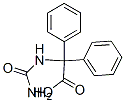
What is PHENYTOIN RELATED COMPOUND B (50 MG) (AL-PHA-((AMINOCARBONYL)AMINO)-ALPHA-PHENYL BEN-ZENEACETIC ACID)?
The Uses of PHENYTOIN RELATED COMPOUND B (50 MG) (AL-PHA-((AMINOCARBONYL)AMINO)-ALPHA-PHENYL BEN-ZENEACETIC ACID)
2,2-Diphenylhydantoic Acid is metabolite of Phenytoin, an anticonvulsant.
Properties of PHENYTOIN RELATED COMPOUND B (50 MG) (AL-PHA-((AMINOCARBONYL)AMINO)-ALPHA-PHENYL BEN-ZENEACETIC ACID)
| Boiling point: | 470.7±45.0 °C(Predicted) |
| Density | 1.306±0.06 g/cm3(Predicted) |
| solubility | DMSO (Slightly), Methanol (Slightly, Heated, Sonicated) |
| form | neat |
| pka | 3.40±0.10(Predicted) |
Safety information for PHENYTOIN RELATED COMPOUND B (50 MG) (AL-PHA-((AMINOCARBONYL)AMINO)-ALPHA-PHENYL BEN-ZENEACETIC ACID)
| Signal word | Warning |
| Pictogram(s) |
 Exclamation Mark Irritant GHS07  Environment GHS09 |
| GHS Hazard Statements |
H302:Acute toxicity,oral H411:Hazardous to the aquatic environment, long-term hazard |
| Precautionary Statement Codes |
P273:Avoid release to the environment. P391:Collect spillage. Hazardous to the aquatic environment P501:Dispose of contents/container to..… |
Computed Descriptors for PHENYTOIN RELATED COMPOUND B (50 MG) (AL-PHA-((AMINOCARBONYL)AMINO)-ALPHA-PHENYL BEN-ZENEACETIC ACID)
New Products
1-Boc-4-cyanopiperidine tert-Butyl carbazate 1-(TERT-BUTOXYCARBONYL)-2-PYRROLIDINONE TETRABUTYLAMMONIUM CYANIDE TETRAHYDRO-2H-PYRAN-3-OL 3-Pyridineacrylic acid Nickel(II) perchlorate hexahydrate, 98% 4-Bromophenylacetonitrile, 95% 3-Bromo-4-fluoroaniline, 97% Sodium tetraborate decahydrate, 98% Palladium(II) acetate, trimer, Pd 99% 4-Bromo-2-chlorotoluene, 97% Tadalafil Clopidogrel bisulfate Sitagliptin Phosphate Monohydrate Cabergoline Fexofinadine HCl Etoricoxib 4-Amino Acetophenone 2-Chloro Acetophenone Amlodipine Base 2,3,5-Triiodobenzoic Acid Pyrrolidine Diiodo PentoxideRelated products of tetrahydrofuran

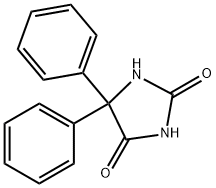
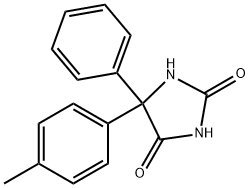
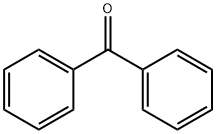
![3a,6a-Diphenyloctahydroimidazo[4,5-d]imidazole-2,5-dione](https://img.chemicalbook.in/CAS/GIF/5157-15-3.gif)

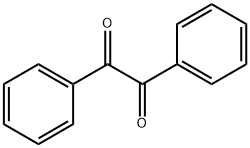
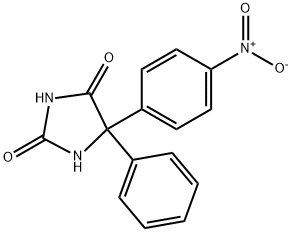
You may like
-
 Phenytoin Related Compound B CAS 6802-95-5View Details
Phenytoin Related Compound B CAS 6802-95-5View Details
6802-95-5 -
 Phenytoin Related Compound B CAS 6802-95-5View Details
Phenytoin Related Compound B CAS 6802-95-5View Details
6802-95-5 -
 366789-02-8 Riveroxaban 98%View Details
366789-02-8 Riveroxaban 98%View Details
366789-02-8 -
 Carvedilol 98%View Details
Carvedilol 98%View Details
72956-09-3 -
 Abiretorone 154229-18-2 98%View Details
Abiretorone 154229-18-2 98%View Details
154229-18-2 -
 73590-58-6 Omeprazole 98%View Details
73590-58-6 Omeprazole 98%View Details
73590-58-6 -
 201530-41-8 Deferasirox 98%View Details
201530-41-8 Deferasirox 98%View Details
201530-41-8 -
 Sertraline HCl 98%View Details
Sertraline HCl 98%View Details
79559-97-0
Statement: All products displayed on this website are only used for non medical purposes such as industrial applications or scientific research, and cannot be used for clinical diagnosis or treatment of humans or animals. They are not medicinal or edible.
